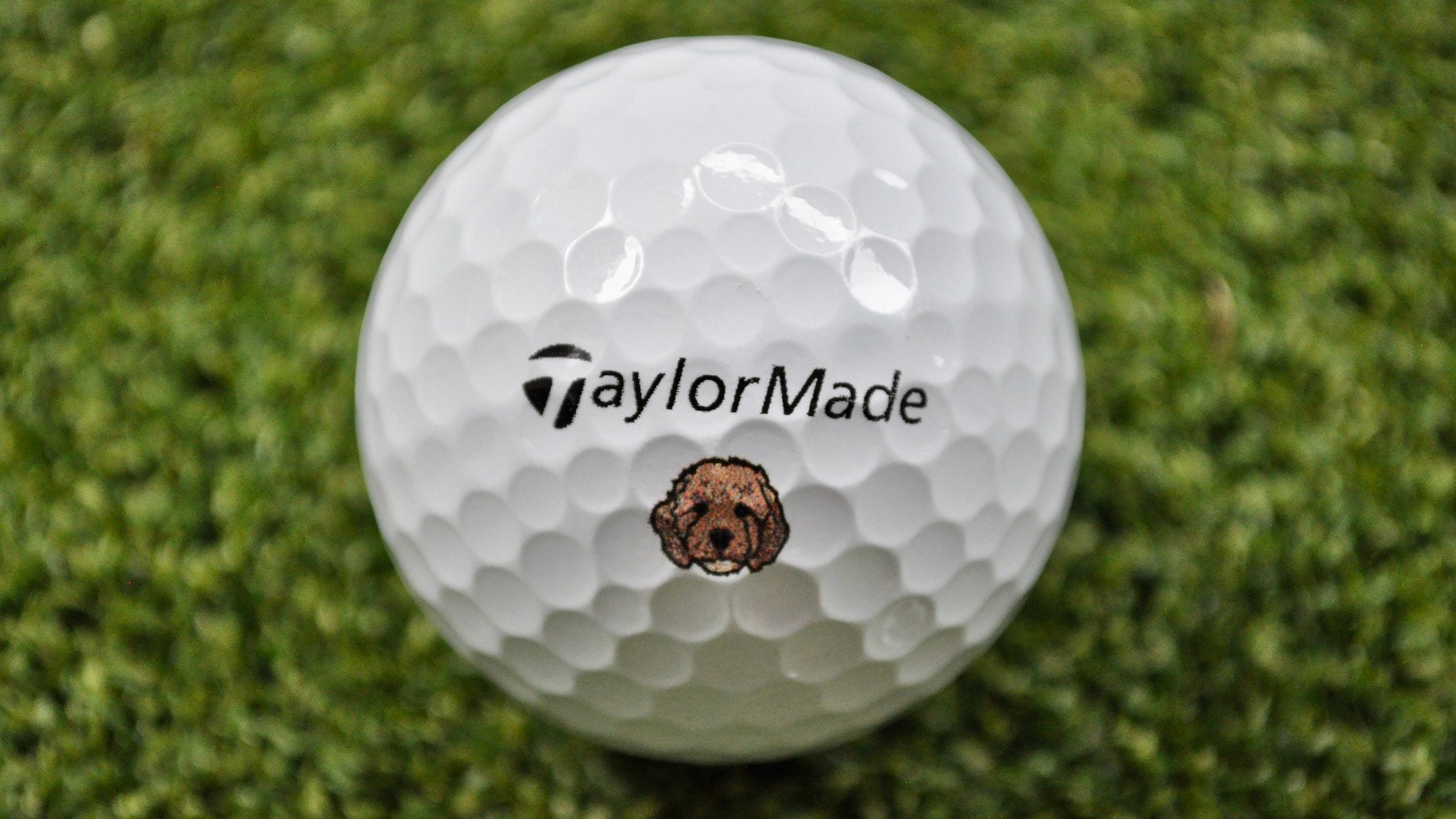
The gear crew at GOLF.com spends a lot of time at Tour events snapping photographs of the tools used by the best players in the world. Posting club images online without context sometimes works, but it doesn’t help the weekend golfer understand the why behind a pro’s setup. In a new GOLF.com series, equipment editors Jonathan Wall and Ryan Barath answer those questions by highlighting interesting clubs in players’ bags, unique weighting, loft sleeve settings and more. Welcome to “Bay Spy.”
***
Special delivery
Courtesy
When Morikawa sees his Goldendoodle, Koa, he generally feels all warm and fuzzy inside — unless he’s chewing on a shoe. Dogs aren’t allowed at PGA Tour events, so Morikawa has to wait until after the round to play with his pup.
A golf ball sporting his dog’s mug (above) isn’t exactly the same thing, but it’s still a fun way to keep Koa front of mind when he’s in the heat of battle.
Since TaylorMade unveiled its MySymbol program, several pros have embraced ball customization and swapped the play number for something with a bit more meaning. In Morikawa’s case, it’s Koa. For fellow TaylorMade staffer Charley Hull, it’s a ball bearing a caricature of the 27-year-old pro.
No word yet if Morikawa’s scoring average will improve without the traditional play number, but the image of Koa is sure to bring a few more smiles on the course.
Painstaking process

Jonathan Wall/GOLF
Not all blades are created equal. The overall look of Morikawa’s custom P7CM irons is very P7MB-esque, but the sole geometry is anything but standard. Morikawa went through a blind test with 11 different prototypes — each iron featured a different bounce, sole and leading edge radius — before landing on a combination that was eerily similar to the P7MC sole: standard bounce, standard leading edge radius and a thin sole.
The overall feel and performance of the blade allows him to play a blended set of P7MC (5- through 6-iron) and P7CM (7-iron through pitching wedge) and not have to worry about turf interaction changing with two iron models in the bag.
It’s a small change that’s made a world of difference for one of the best ball-strikers in the world.
Driver setup
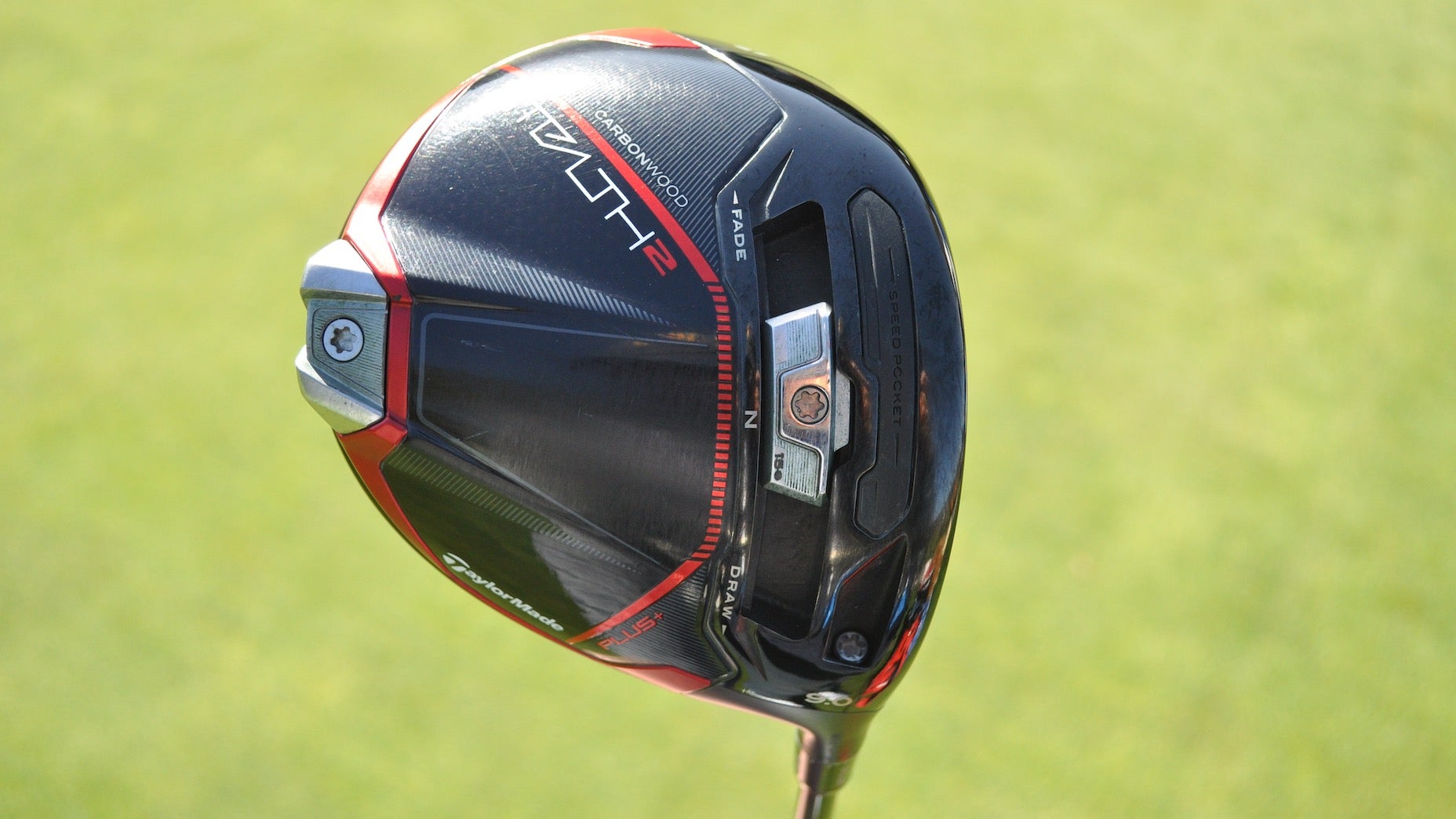
Jonathan Wall/GOLF
There are plenty of ways to execute a fade. You can change your setup or make a few modifications to the head and let the club do some of the work. In Morikawa’s case, he’s in the setup department. While he does have the heavy 15-gram adjustable weight in the sliding track — offered in 4, 10 and 15 grams at retail — it’s positioned ever-so-slightly toward the heel.
It’s not enough to make a noticeable change in shot shape, thereby allowing Morikawa to work the ball as he so chooses. As much as we preach the benefits of driver adjustability — and they are numerous — sometimes it’s best to lean on setup changes to achieve the proper launch and direction.
Whatever works
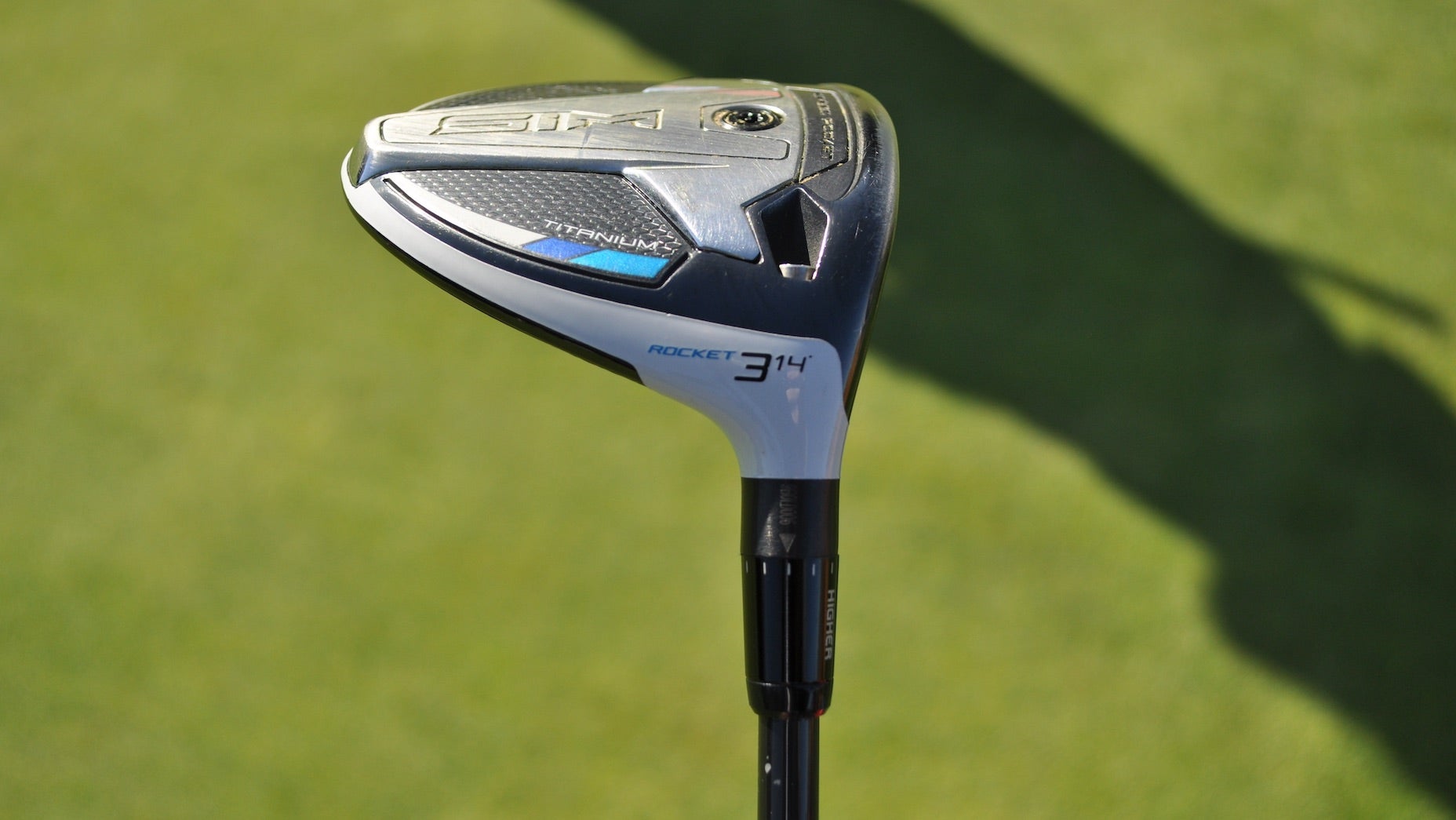
Jonathan Wall/GOLF
Fairway woods remain the toughest club to bounce from the bag, especially when you have something reliable. Morikawa’s TaylorMade SIM Titanium Rocket 3-wood certainly falls into this category. The Rocket version wasn’t nearly as popular as the standard head, but the stronger loft gives Morikawa a serious secondary option off the tee.
In the current loft sleeve setting, Morikawa’s face is closed 1.5 degrees with an additional 0.75 degrees of loft. The overall setup actually gives him slightly more spin (around 150 RPMs), and that’s never a bad thing when you need to find the fairway or take a shot at the green.
More doggo
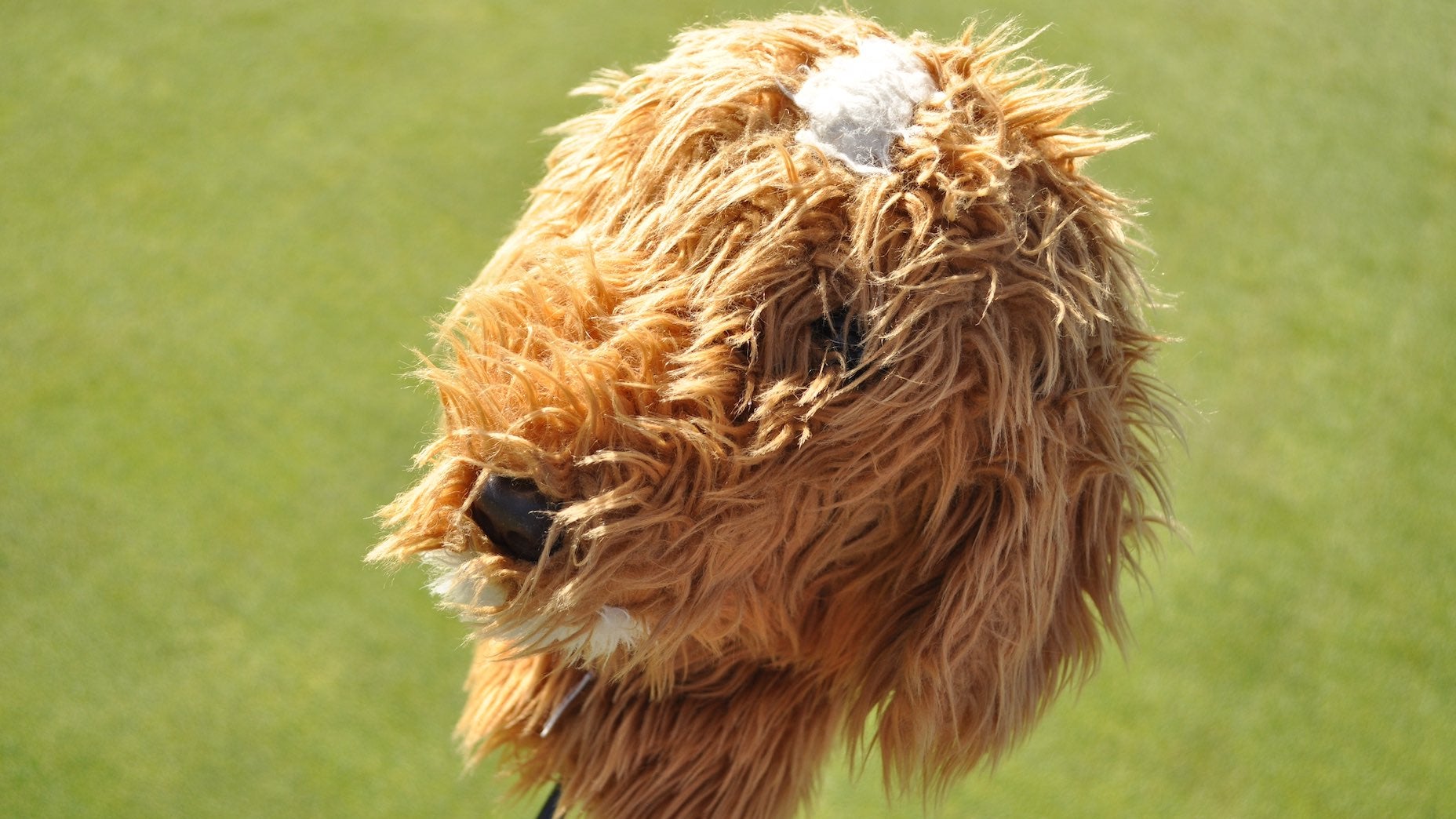
Jonathan Wall/GOLF
Morikawa’s Stealth 2 Plus driver is protected by a familiar face. Similar to the dog-inspired golf ball he’s using at the moment, it’s all about finding ways to add some personality to the equipment setup. Tiger’s “Frank” headcover and Rory’s St. Bernard remain the two most recognizable covers in professional golf, but Koa is definitely moving up the power rankings.
Any dog with its own Instagram is always going to be in the discussion.
Switch it up
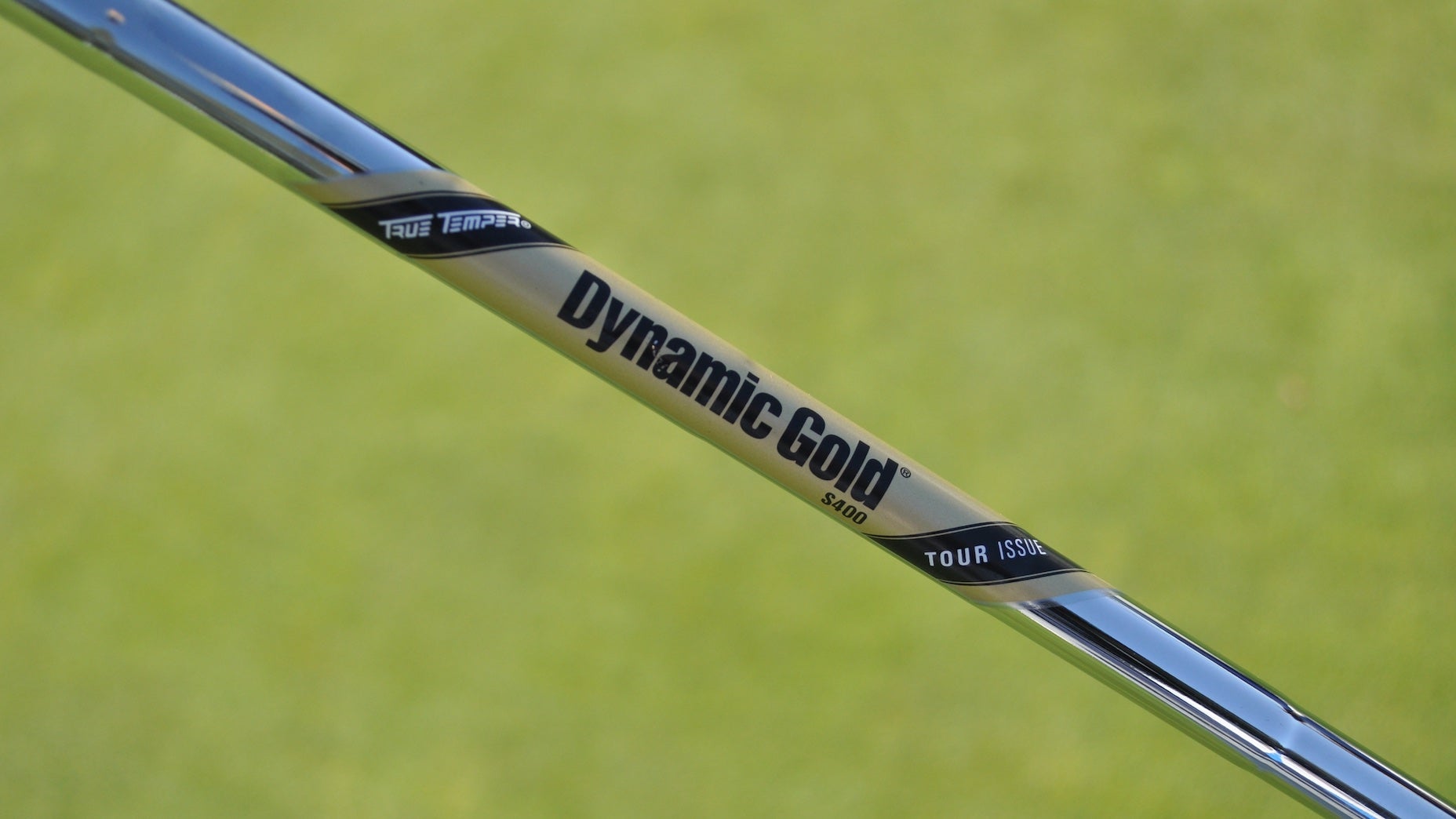
Jonathan Wall
Morikawa is another pro who subscribes to Tiger Woods’ iron and wedge shaft setup. Instead of playing the same shaft flex through the bag, Morikawa starts with True Temper Dynamic Gold Tour Issue X100 shafts in his TaylorMade irons and then transitions into a softer S400 flex in the wedges.
While it varies from player to player, most will notice a slightly lower ball flight and more feel in the hands with a softer flex. For some, it can also help maintain spin compared to using the same shaft across the board. Considering many Tour players prioritize feel, consistency and control on shorter approach shots, it’s easy to see why so many drop down in flex with the wedges.
Even though Morikawa’s wedge shafts are slightly softer for feel purposes, they’re actually on the heavier side for timing on touch shots. If you do decide to tinker with a softer flex in the wedges, make sure the shafts are heavier than your iron shafts. Considering all of the touch shots you play with a wedge, altering swing weight in the opposite direction can lead to inconsistencies with delivery, contact, and turf interaction.
Consistent contact
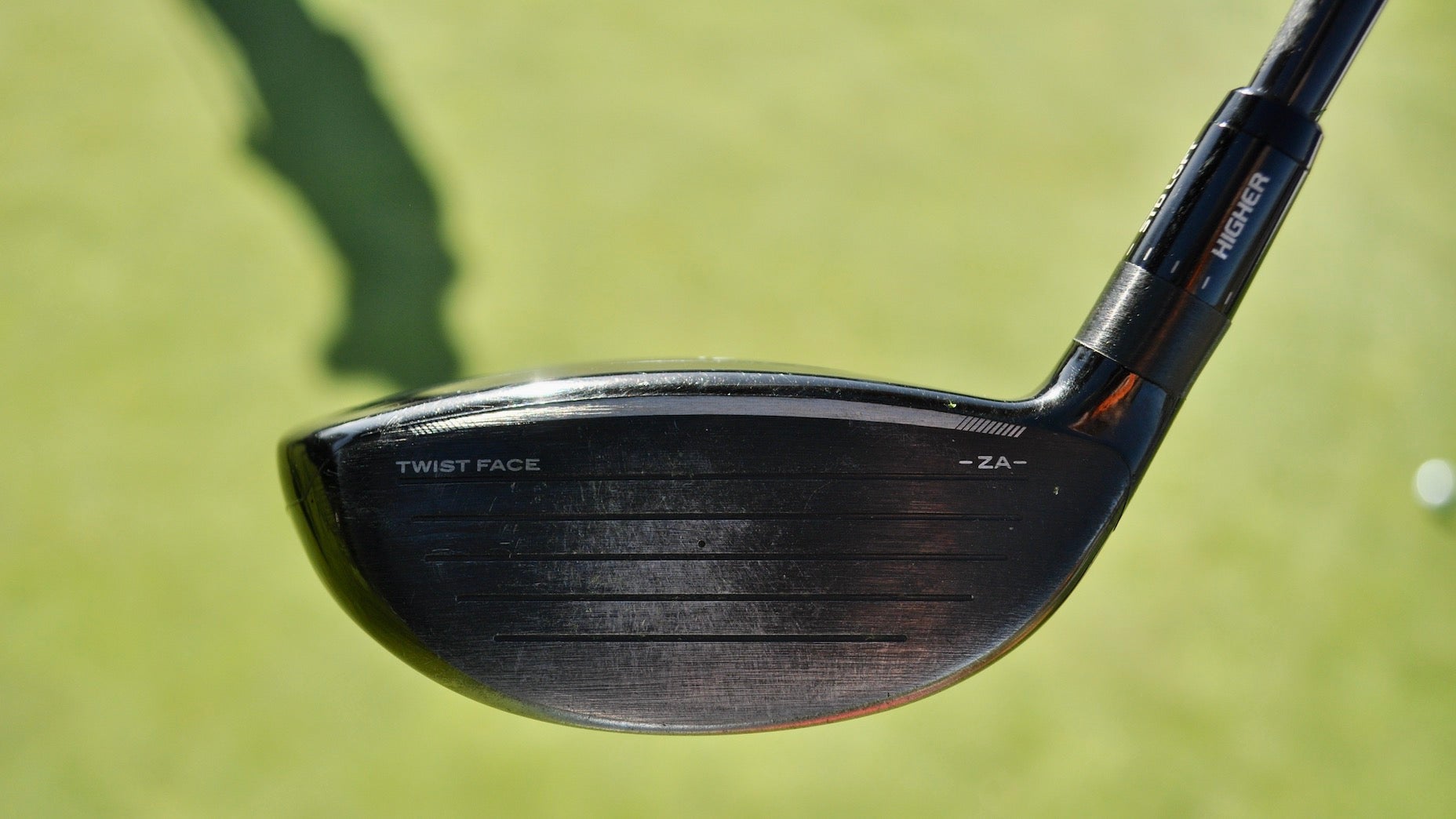
Jonathan Wall/GOLF
We’ll leave you with a photo ALL golfers should hang next to their clubs as the golf season officially begins for most of the country. What stands out when you look at the wear spot on Morikawa’s Stealth 2 Plus fairway wood? Most would point out it’s slightly toward the toe, which is certainly an impact location that deserves further discussion on the Fully Equipped podcast. However, in this case, I prefer to highlight the rest of the face and the fact that the black finish still looks pristine.
If you do anything this summer, aspire to have Morikawa-esque impact consistency. All jokes aside about getting your money’s worth out of the entire face, honing in on improved impact will make carry yardages and launch characteristics more predictable. This, in turn, should make the game more enjoyable. That’s my way of saying you need to stop fixating on unpredictable distance gains and worry about finding more fairways and greens.
Want to overhaul your bag for 2023? Find a fitting location near you at GOLF’s affiliate company True Spec Golf. For more on the latest gear news and information, check out our latest Fully Equipped podcast below.








